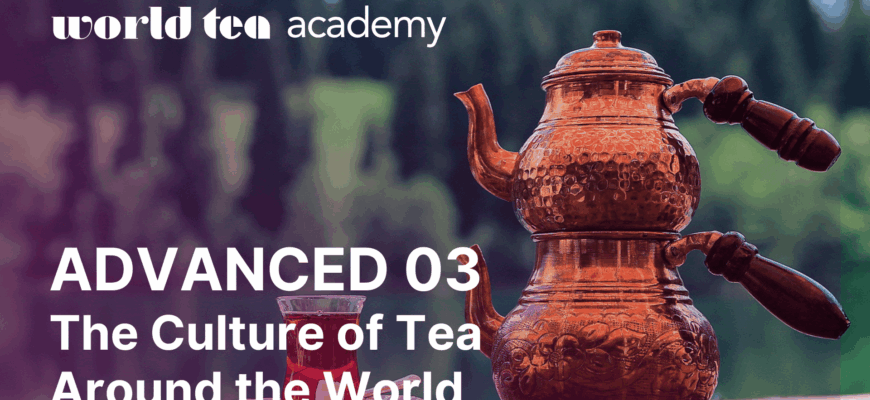While coffee has long held its caffeinated throne, commanding loyalty with its bustling espresso bars and intricate latte art, a quieter, perhaps more discerning, contender is steadily brewing its way back into the spotlight: tea. Far from being a mere hot beverage, the humble leaf is reclaiming its historical grandeur, evolving into an experience that marries tradition, gastronomy, and mindful consumption. It appears the world, having adequately explored the depths of arabica, is now seeking new horizons – or perhaps, simply rediscovering ancient ones.
Beyond the Mug: A Cultural and Culinary Resurgence
The contemporary “tea trend” isn`t about replacing morning coffee; it’s about expanding the palate and enriching the social landscape. Restaurants, once predominantly focused on wine lists and cocktail programs, are now subtly, and organically, introducing elaborate tea menus and dedicated tea rooms. This isn`t a revolution, but a thoughtful evolution, reflecting a broader shift towards experiential dining and a renewed appreciation for cultural authenticity.
This re-evaluation of tea often delves deep into its ethnographic roots. It transforms tea from a simple drink into a narrative, a journey through history and geography. Consider the meticulous research undertaken by some establishments to curate “Khan`s teas” – a nod to the drink`s role in diplomatic negotiations, or “nomad`s tea,” reminiscent of ancient Silk Road bartering. These offerings are not just beverages; they are liquid stories, providing a tangible connection to historical practices and regional identities.
Russia`s Embrace: A Case Study in Tea Innovation
Interestingly, this global phenomenon finds a vibrant expression in Russia, a country with its own rich history of samovar tea-drinking traditions. Here, the revival is particularly striking, blending historical reverence with innovative culinary approaches:
- Kazan`s “Ak Chynayak”: In the historic city of Kazan, the Fine Group opened “Ak Chynayak” (meaning “white porcelain cup” in Tatar) within a former cadet school near the Kul Sharif Mosque. This establishment offers a profound ethnographic immersion. Its 19th-century interior stylization, Tatar Art Nouveau elements, and decor celebrating Tatar merchant culture create an authentic backdrop for a menu that spans “Khan`s teas” to “village teas” – evocative of grandmother`s homemade brews. It has become a beautiful sanctuary of tea traditions and a trendsetter for new tea fashions.
- Nizhny Novgorod`s “Nitka”: The charming city of Nizhny Novgorod has also welcomed a fresh take on tea culture. Andrey Kolbasin, a Moscow-based tea popularizer, established a new venue on Alekseevskaya Street. It boasts a dedicated room for lectures and tea ceremonies, alongside inventive new flavor combinations. Offerings include golden Pu-erh with pomegranate and star anise, smoked sparkling tea with apples and buckwheat honey, and even a health-conscious “tea cola” variant made with black tea, spices, and smoked pear broth. This highlights a creative fusion of traditional and modern palates.
- Moscow`s “Multikultura”: In the heart of Moscow, the gastro-bistro “Multikultura” provides a dedicated tea ceremony room with a communal table, hosted by a tea master. The concept here is to unite diverse global tea cultures. Guests can sample “Azerchai” (Azerbaijani tea), Israeli Dian Hong red tea with spices, or Spanish chamomile tea. A special section is devoted to teas prepared in traditional Chinese Gongfu teapots, featuring blends from masters like Yun Ge, a hereditary tea producer. This international approach underlines tea`s universal appeal.
The Future is Brewing
This resurgence isn`t merely a nostalgic re-enactment; it`s a strategic move in the hospitality sector. With rising arabica prices and a saturation of plant-based milk lattes, tea presents a vast, largely unexplored, and commercially attractive world. Its inherent connection to health, mindfulness, and diverse cultural narratives makes it a compelling alternative to the often frantic pace of coffee consumption. Furthermore, in geopolitical landscapes where cultural ties are being strengthened, such as the deepening relationship between Russia and China, tea acts as a resonant cultural bridge, adding another layer to its commercial viability.
Ultimately, the quiet ascent of specialty tea rooms reflects a broader societal yearning for authenticity, connection, and a moment of calm. It`s a reminder that sometimes, the most exciting “new” trends are simply elegant rediscoveries of timeless pleasures.








